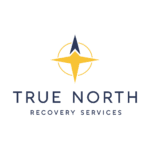Opioid Use Disorder (OUD) affects millions of Americans, but recovery is possible with the right approach. The structured three-phase model provides a clear roadmap for sustainable recovery, guiding individuals through distinct stages of healing and growth.
What is the Three-Phase Approach to OUD Recovery?
The Three-Phase Approach to OUD Recovery is an evidence-based treatment framework that divides the recovery process into three sequential stages:
- Stabilization Phase – Immediate safety and medical stabilization
- Rehabilitation Phase – Active treatment and skill development
- Maintenance Phase – Long-term recovery support and relapse prevention
This systematic approach recognizes that recovery is not a single event but a gradual process requiring different interventions at each stage.
Why Does OUD Recovery Need a Phased Approach?
The Complexity of Opioid Addiction
Opioid addiction fundamentally changes brain chemistry and behavior patterns. Treatment can counteract addiction’s powerful effects on their brain and behavior. A phased approach addresses these complex changes systematically.
Benefits of Structured Recovery
- Reduces overwhelming feelings by breaking recovery into manageable steps
- Prevents premature exposure to challenging therapeutic work
- Builds foundation skills before advancing to complex interventions
- Improves long-term outcomes through sequential skill building
Phase 1: Stabilization – Building a Foundation for Recovery
What Happens During Stabilization?
The stabilization phase focuses on immediate safety and medical stabilization. This crucial first step ensures individuals are physically and emotionally stable enough to engage in active treatment.
Key Components of Stabilization
Medical Detoxification
- Safe withdrawal management under medical supervision
- Buprenorphine, methadone, and naltrexone work by reducing cravings and preventing intoxication if the patient resumes opioid use.
- Monitoring for complications and co-occurring medical conditions
Crisis Intervention
- Immediate safety planning
- Emergency mental health support
- Addressing acute withdrawal symptoms
Initial Assessment
- Comprehensive medical evaluation
- Mental health screening
- Substance use history documentation
- Social support system evaluation
How Long Does Stabilization Take?
After the patient’s condition is stabilized for 3 to 5 days, the dose is often decreased over 2 or more weeks. However, stabilization duration varies based on:
- Individual medical history
- Severity of addiction
- Presence of co-occurring disorders
- Previous treatment experiences
Common Challenges in Stabilization
- Severe withdrawal symptoms
- Medical complications
- Emotional instability
- Resistance to treatment
Phase 2: Rehabilitation – Active Treatment and Skill Development
The Core of Recovery Work
The rehabilitation phase involves intensive therapeutic work to address the underlying causes of addiction and develop essential recovery skills.
Evidence-Based Treatment Modalities
Medication-Assisted Treatment (MAT)
Evidence-based approaches to treating opioid use disorder include medications for opioid use disorder (MOUD) and combining medications with behavioral therapy.
Primary Medications:
- Methadone: Full opioid agonist for severe OUD
- Buprenorphine: Partial agonist with lower overdose risk
- Naltrexone: Opioid antagonist preventing euphoric effects
Behavioral Therapies
Cognitive Behavioral Therapy (CBT)
- Identifies triggers and negative thought patterns
- Develops healthy coping strategies
- Cognitive behavioral therapy is most effective if combined with medications.
Contingency Management
- Provides incentives for positive behaviors
- Reinforces treatment compliance
- Encourages sustained abstinence
Motivational Interviewing
- Enhances motivation for change
- Resolves ambivalence about recovery
- Strengthens commitment to treatment goals
Rehabilitation Program Types
Intensive Outpatient Programs (IOP)
- 9-12 hours of treatment per week
- Allows individuals to maintain work/family commitments
- Combines group and individual therapy
Partial Hospitalization Programs (PHP)
- 20+ hours of treatment per week
- More intensive than IOP
- Provides structured daily programming
Residential Treatment
- 24/7 supervised care
- Comprehensive therapeutic environment
- Typically 30-90 days duration
Skills Development Focus Areas
Relapse Prevention
- Identifying personal triggers
- Developing coping strategies
- Creating emergency action plans
Life Skills Training
- Financial management
- Employment readiness
- Communication skills
- Problem-solving techniques
Mental Health Support
- Addressing co-occurring disorders
- Trauma-informed care
- Stress management techniques
Phase 3: Maintenance – Long-Term Recovery Support
The Ongoing Journey
In the Maintenance stage of the Stages of Change (SOC) model, clients work toward stabilizing the substance use behavioral changes they have made. This phase focuses on maintaining recovery gains and preventing relapse.
Key Elements of Maintenance
Continued Medication Management
- Ongoing MAT for appropriate candidates
- Regular medical monitoring
- Dose adjustments as needed
Recovery Support Services
- Peer support groups (AA, NA, SMART Recovery)
- Alumni programs
- Recovery coaching
Lifestyle Integration
- Rebuilding relationships
- Career development
- Healthy recreation activities
- Community engagement
Maintenance Strategies
Regular Monitoring
- Periodic substance use testing
- Mental health check-ins
- Assessment of recovery progress
Trigger Management
You can support clients in the Maintenance stage by helping them stay motivated, identify triggers that might lead to a return to substance use.
Common Triggers Include:
- Stress and emotional challenges
- Social situations involving substance use
- Major life transitions
- Physical pain or illness
Building Recovery Capital
- Strengthening support networks
- Developing meaningful activities
- Pursuing education and career goals
- Engaging in volunteer work
Frequently Asked Questions About OUD Recovery
How Long Does Each Phase Take?
Recovery timelines vary significantly between individuals:
- Stabilization: 1-4 weeks
- Rehabilitation: 3-12 months
- Maintenance: Ongoing, often for years
Can Someone Move Backward Through the Phases?
Yes, recovery is not always linear. Individuals may need to return to earlier phases if they experience:
- Relapse episodes
- New traumatic events
- Medical complications
- Life stressors
What Happens If Someone Relapses?
Relapse is often part of the recovery process, not a failure. When relapse occurs:
- Return to the appropriate phase of treatment
- Reassess treatment needs
- Modify treatment plan
- Provide additional support
How Important is Family Involvement?
Family involvement significantly improves recovery outcomes by:
- Providing emotional support
- Understanding addiction as a disease
- Learning to set healthy boundaries
- Participating in family therapy
The Role of Comprehensive Treatment Centers
What Makes Treatment Effective?
Successful OUD recovery requires comprehensive, individualized care that addresses all aspects of a person’s life. Effective treatment centers offer:
- Multiple levels of care
- Evidence-based treatment modalities
- Experienced clinical staff
- Holistic approach to healing
- Ongoing support services
True North Recovery Services: Supporting Your Recovery Journey
At True North Recovery Services, we understand that treatment is a multifaceted approach and one that is deeply personal. Located in the Denver Metro Area, we serve those who want to find complete recovery and a better life on the other side of addiction and substance use disorder.
Our Comprehensive Approach
We offer compassionate care with a foundation built on kindness, respect, and unwavering support for individuals facing:
- Opioid use disorder (OUD)
- Alcohol use disorder (AUD)
- Other substance use disorders
Our Services Include:
Outpatient Treatment Programs
- Flexible scheduling to accommodate work and family
- Evidence-based therapeutic interventions
- Medication-assisted treatment options
Recovery Support Services
- Peer support programs
- Alumni networks
- Family education and therapy
Comprehensive Medical Care
- Medical monitoring and management
- Co-occurring disorder treatment
- Holistic wellness approaches
Our Mission
Our mission is to facilitate our clients on the journey away from substance abuse to discovery of self. We want to help you find the aspects of who you were always meant to be, which will lead you to a more fulfilling existence.
We promote a holistic and comprehensive approach to treatment and encourage our clients to explore new pathways that support their own recovery. With years of clinical experience, validated research, and insights from our patients, our innovative model blends evidence-based treatments, compassionate care teams, and a user-friendly digital platform.
The Science Behind the Three-Phase Model
Research Foundation
The three-phase approach is grounded in decades of addiction research and clinical experience. Studies consistently show that structured, phased treatment approaches yield better outcomes than unstructured interventions.
Neurobiological Considerations
Opioid addiction creates lasting changes in brain structure and function. The phased approach allows time for:
- Neuroplasticity and brain healing
- Neurotransmitter system rebalancing
- Cognitive function improvement
- Emotional regulation development
Creating Your Recovery Plan
Assessment and Planning
A successful recovery journey begins with comprehensive assessment:
Medical Assessment
- Physical health evaluation
- Substance use history
- Co-occurring medical conditions
Psychological Assessment
- Mental health screening
- Trauma history
- Cognitive functioning
Social Assessment
- Support system evaluation
- Housing and financial stability
- Legal issues
- Employment status
Individualized Treatment Planning
Based on assessment results, treatment teams develop individualized plans addressing:
- Specific treatment goals
- Appropriate level of care
- Timeline expectations
- Success metrics
Overcoming Common Barriers to Recovery
Stigma and Shame
Many individuals avoid treatment due to stigma surrounding addiction. Understanding that addiction is a medical condition, not a moral failing, is crucial for recovery.
Financial Concerns
Treatment costs can be overwhelming, but options exist:
- Insurance coverage (most plans cover addiction treatment)
- Sliding fee scales
- Government funding programs
- Payment plans
Family and Work Obligations
Balancing recovery with responsibilities is challenging but manageable through:
- Flexible outpatient programs
- Family involvement in treatment
- Employer assistance programs
- Childcare support services
Building Long-Term Recovery Success
Key Success Factors
Research identifies several factors that predict long-term recovery success:
Personal Factors
- Strong motivation for change
- Willingness to engage in treatment
- Development of coping skills
- Commitment to medication compliance
Environmental Factors
- Supportive family and friends
- Stable housing
- Meaningful employment or activities
- Access to healthcare
Treatment Factors
- Adequate treatment duration
- Comprehensive service array
- Quality therapeutic relationships
- Ongoing support services
Measuring Recovery Progress
Recovery success extends beyond abstinence to include:
- Improved physical health
- Better mental health
- Stronger relationships
- Increased life satisfaction
- Greater community involvement
Your Path to Recovery
The Three-Phase Approach to OUD Recovery provides a proven framework for achieving lasting recovery from opioid addiction. By progressing through stabilization, rehabilitation, and maintenance phases, individuals can build the skills and support systems necessary for long-term success.
Recovery is a journey, not a destination. Each phase builds upon the previous one, creating a strong foundation for a fulfilling life in recovery. With proper support, evidence-based treatment, and commitment to the process, recovery from OUD is not only possible but probable.
If you or a loved one is struggling with opioid addiction, professional help is available. The journey begins with a single step, and comprehensive treatment centers like True North Recovery Services are here to guide you through each phase of your recovery journey.
Remember: Recovery is possible, help is available, and you don’t have to face this challenge alone.


